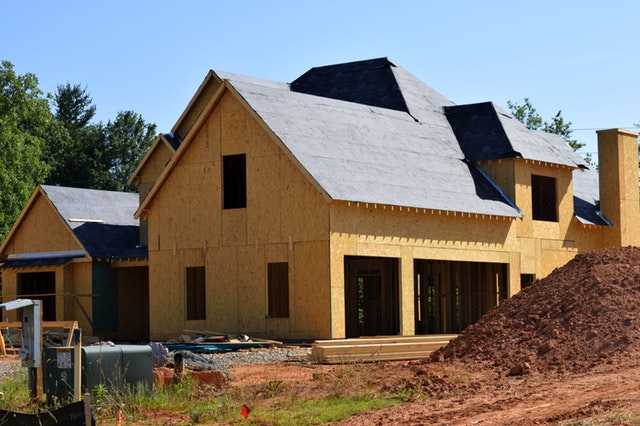NAHB: Housing Market Index Rises 1 Point in July
 Home Builder sentiment rose one point in July according to the National Association of Home Builders Housing Market Index. 2019 builder confidence in housing market condition continued to fall short of 2018 levels. July’s Housing Market Index reading of 65 was one point higher than June’s reading.
Home Builder sentiment rose one point in July according to the National Association of Home Builders Housing Market Index. 2019 builder confidence in housing market condition continued to fall short of 2018 levels. July’s Housing Market Index reading of 65 was one point higher than June’s reading.
Component readings also rose one point each. Builder confidence in current housing market conditions rose to 72; the reading for builder confidence in market conditions for the next six months rose to 71. Builder confidence in buyer traffic in new housing developments rose to an index reading of 48; buyer traffic readings seldom exceed the neutral reading of reading of 50.
2019 Builder Confidence Is Lagging Behind 2018 Readings
Year to date, builder confidence index readings averaged 63 as compared to a reading of 67 in 2018 and 68 in 2017. Ongoing headwinds affecting builders were familiar concerns over materials prices and shortages of buildable lots and labor. Analysts said that builders remain leery of building to many homes after having large inventories of unsold homes after the Great Recession.
Builders also noted that increasing regulation and local building codes are impacting some areas. Builders are under pressure to produce affordable homes, but are log-jammed by “not in my backyard” zoning restrictions when they apply to build mixed developments of single and multi-family homes.
There may be good news on the horizon. Oregon passed state legislation banning exclusively single-family zoning. Depending on population, local jurisdictions will be allowed to build duplexes and larger multi-family units. If other states and communities follow Oregon’s lead, builders may find new options for building multiple units on lots formerly zoned for single family homes. Building affordable homes would help to ease housing shortages and ease demand for homes.
If you are in the market for a new home or interested in listing your current property, be sure to contact your trusted home mortgage and real estate professionals.

 A hot market in real estate is identified by a few things, which include higher prices, lower amounts of unsold inventory, and desirable neighborhoods. Neighborhoods can increase in value because of having an excellent location, high-paying jobs, quality schools, and a variety of attractive amenities.
A hot market in real estate is identified by a few things, which include higher prices, lower amounts of unsold inventory, and desirable neighborhoods. Neighborhoods can increase in value because of having an excellent location, high-paying jobs, quality schools, and a variety of attractive amenities. Last week’s economic releases included reports on inflation, core inflation and minutes from the Federal Open Market Committee Meeting held June 18 and 19. Weekly readings on mortgage rates and first-time jobless claims were also released.
Last week’s economic releases included reports on inflation, core inflation and minutes from the Federal Open Market Committee Meeting held June 18 and 19. Weekly readings on mortgage rates and first-time jobless claims were also released. Hardwood flooring is considered a premium flooring material. It’s natural, long-lasting, durable and comes in a wide assortment of colors, wood, stains and plank widths. But hardwood flooring isn’t always the best choice. If you’re looking at homes to buy and eliminating the ones with laminate flooring, you could be overlooking some important considerations.
Hardwood flooring is considered a premium flooring material. It’s natural, long-lasting, durable and comes in a wide assortment of colors, wood, stains and plank widths. But hardwood flooring isn’t always the best choice. If you’re looking at homes to buy and eliminating the ones with laminate flooring, you could be overlooking some important considerations. An estate sale is the sale of the property owned by a person after a person dies. This sale may include real property, such as a home, and personal property, such as the home’s contents.
An estate sale is the sale of the property owned by a person after a person dies. This sale may include real property, such as a home, and personal property, such as the home’s contents.